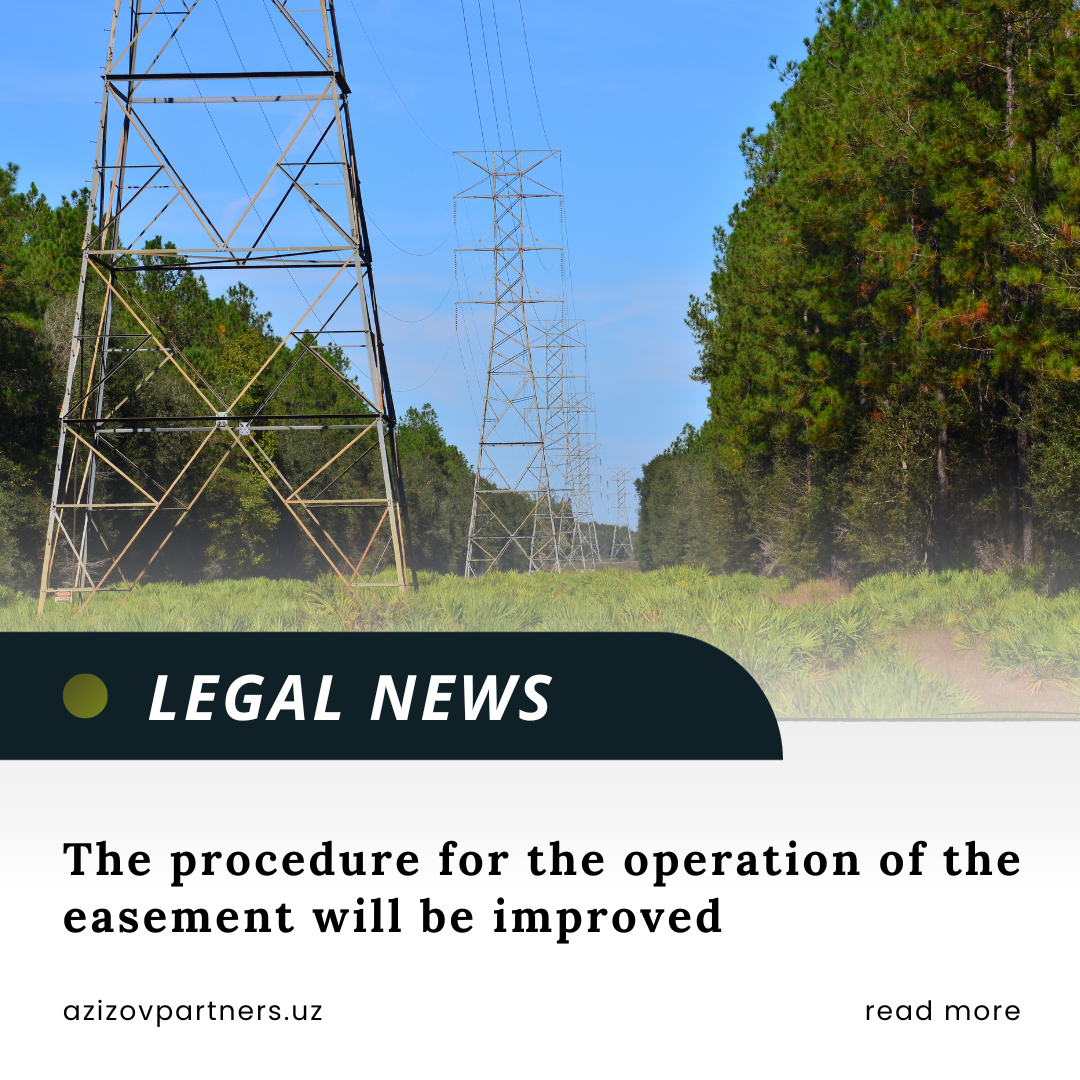November 13, 2023
The procedure for the operation of the easement will be improved
On 25.10.2023, the Law of 23.10.2023 No. LRU–871 “On Amendments and additions to certain legislative acts of the Republic of Uzbekistan in connection with the improvement of land legislation” came into force.
A new provision has been introduced into the Law “On Rent”, according to which:
– the lessee may transfer the rights and obligations under the objects of lease relations to another person with the consent of the lessor (transfer);
– when the right to real estate is transferred to another person, along with this object, the rights and obligations to lease the land occupied by this object and necessary for its use are transferred to another person. At the same time, the consent of the lessor is not required.;
– persons who have received non-agricultural land plots through an electronic online auction may transfer (transfer) rights and obligations in respect of leased land plots to another person, but not for more than the lease term. At the same time, the rights and obligations under the lease agreement are transferred to the new tenant.
Amendments and additions are being made to the Civil Code according to which:
– an easement cannot be an independent subject of purchase and sale, donation, pledge, or lease;
– the amount of the paid (one-time or permanent) fee for the easement may not be less than the amount of land tax (rent) established for the easement period.
Amendments and additions are being made to the Land Code, according to which:
– the easement agreement must contain the following conditions:
- cadastral number of the land plot;
- objectives and grounds for establishing an easement;
- information about the parties to the contract;
- term of the easement;
- the amount of the established easement fee (if any);
- rights, obligations, and responsibilities of the parties to the contract;
- the obligation to bring the land plot into a condition suitable for use for its intended purpose after the expiration of the established easement period;
– the easement may be terminated:
- by mutual consent of the easement participants;
- at the reasonable request of the landowner, land user, tenant, and owner of land plots or the person in whose interests the easement is established;
- in case of prolonged non-use (at least 3 years) easement;
- in case of expiration of the easement;
- if the grounds that served as the reason for the establishment of the easement have lost their significance.
– the right of limited use of someone else’s land for public needs (public easement) may be established for the following purposes:
- conducting geological surveys, prospecting, geodetics, and other survey work on someone else’s land;
- laying and operation of electrical networks, communication lines and other lines, pipelines, internal irrigation networks, engineering networks, and other public networks on someone else’s land.
The public easement is established by the decision of the khokim (mayor) of the region and the city of Tashkent based on appeals from interested organizations.

